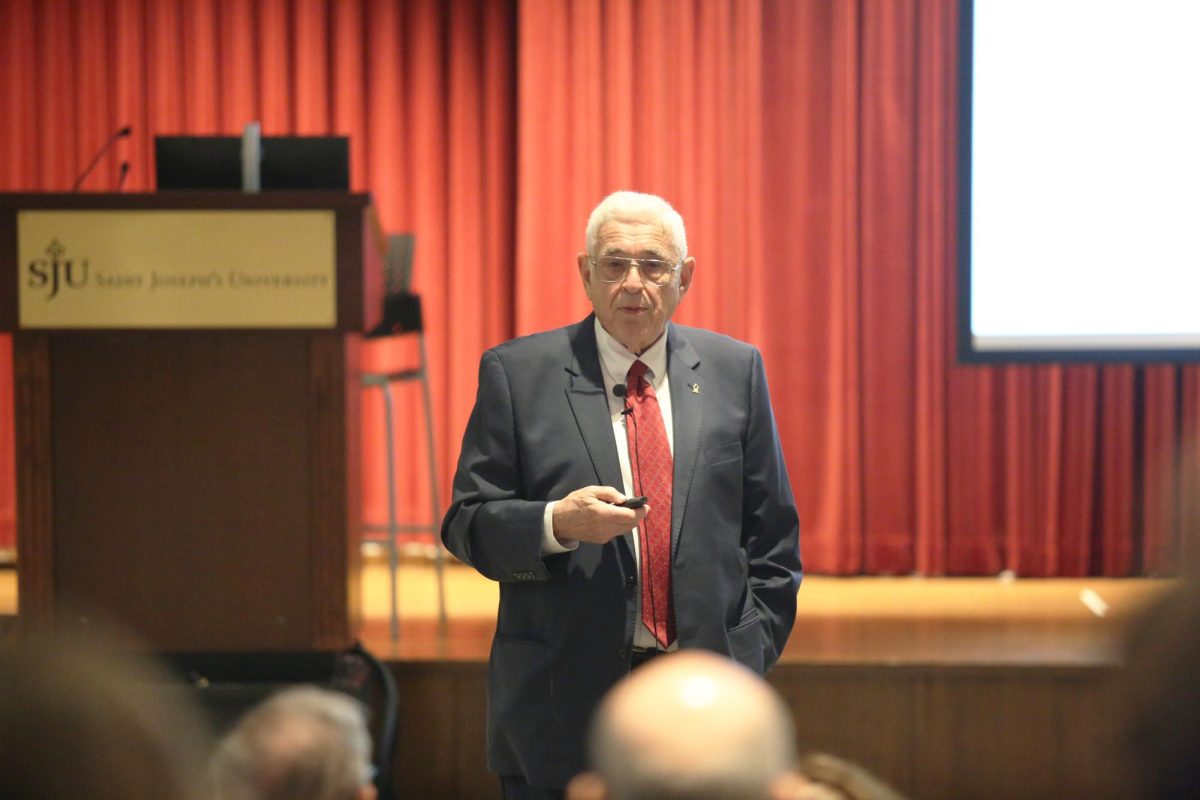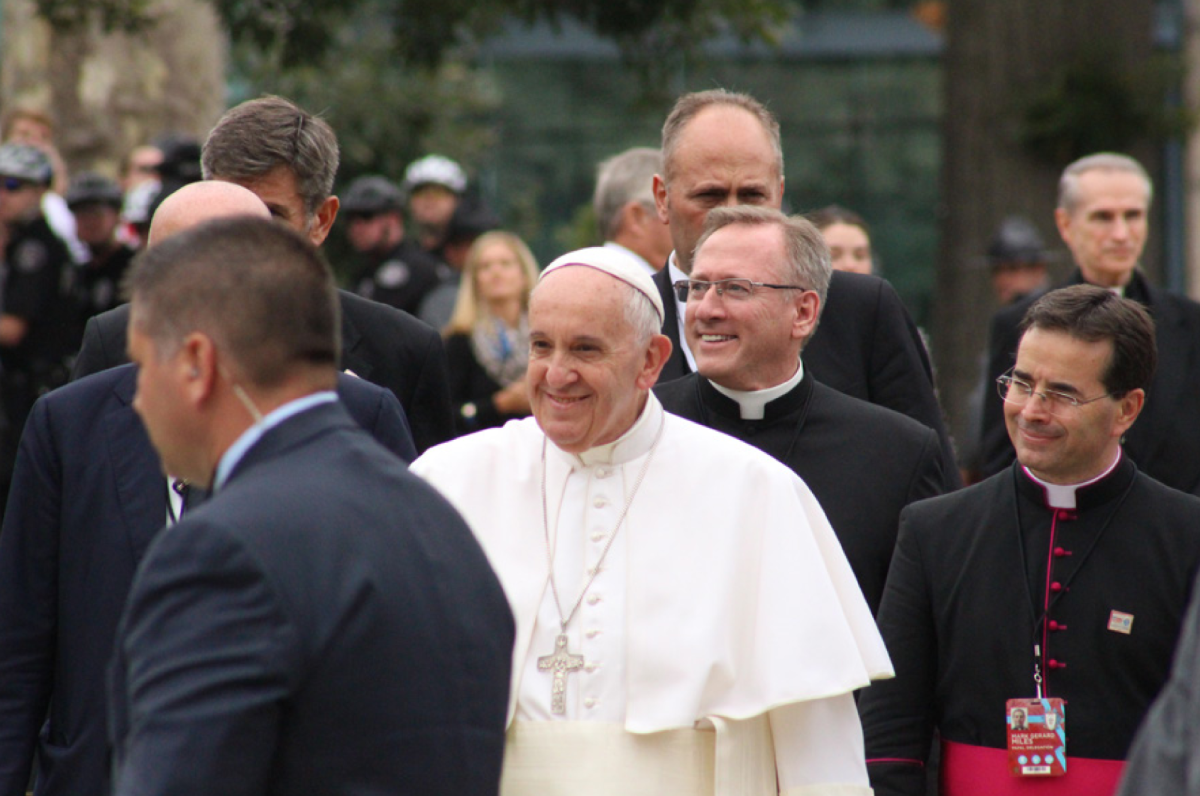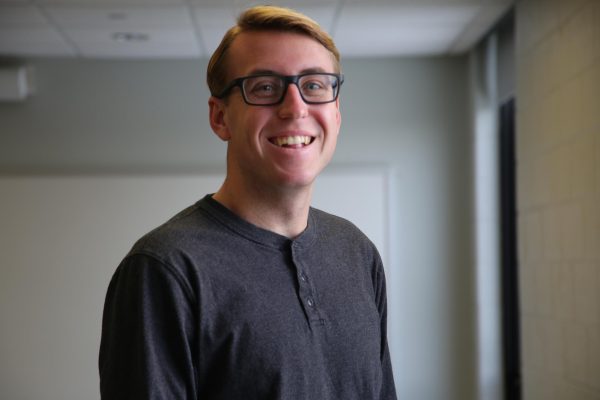The Institute for Jewish-Catholic Relations held its first of three fall public programs, “Understanding Multiple Narratives about Israel/Palestine,” Sept. 16 in the Mandeville Hall Teletorium.
Co-sponsored by the Faith-Justice Studies Program, the event’s main speaker was S. Ilan Troen, Ph.D., an American-Israeli scholar and historian who spoke about how to understand the multiple complex narratives surrounding the relationship between Israel and Palestine.
Troen is professor emeritus of modern history at Ben-Gurion University of the Negev and professor emeritus of Israel Studies at Brandeis University. His presentation described the different religious and secular political narratives used to define the relationship between Israel and Palestine, particularly in reference to Israeli statehood.
Troen explained recognizing religion’s role, whether it is involved implicitly or explicitly, is key to understanding the history and relationship between Israel and Palestine.
“Total denial is absolutely inaccurate and wrong,” Troen said. “But what measure of recognition and how much weight to give to religion depends on situations and depends upon people at different times.”
Adam Gregerman, Ph.D., professor of theology and associate director of the Institute for Jewish-Catholic Relations, said through events like this, the Institute aims to spread knowledge and show students these conversations are important.
“We typically focus on things that are interreligious, often dealing with Jewish and Christian relations, but including Islam as well, and we think it really fills a niche in the community,” Gregerman said. “What we try to do is something that’s different, which is both a perspective that doesn’t get as much attention, but I think really should, and also one that I think has a moral component to it.”
Dinithi Weerasinghe ’27, a student who attended the event, said Troen’s perspective was unique and taught her about the history of the region.
“I was interested to learn more about the history, like how he was talking about how the different Abrahamic religions had migrated into that land,” Weerasinghe said.
Troen said exchanging perspectives was a key reason for events like his, especially on college campuses.
“This becomes a place for exchanging ideas,” Troen said. “That’s what universities are about. That’s why I’m a university professor, because I like ideas and I like learning from other people and their ideas, and maybe I have something to teach.”
Luke Sanelli ’26 contributed to this article.









































